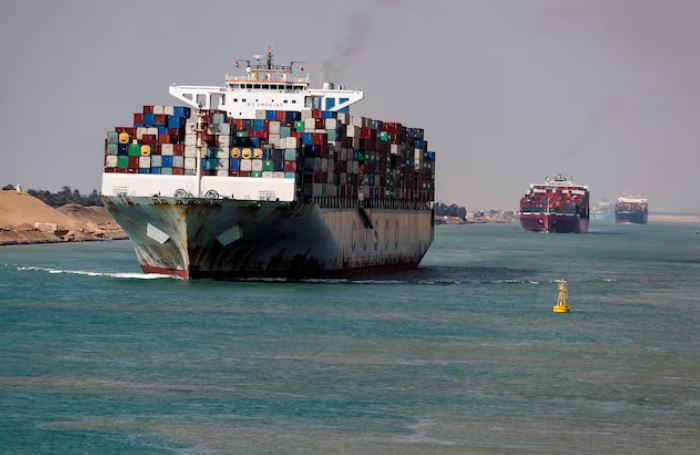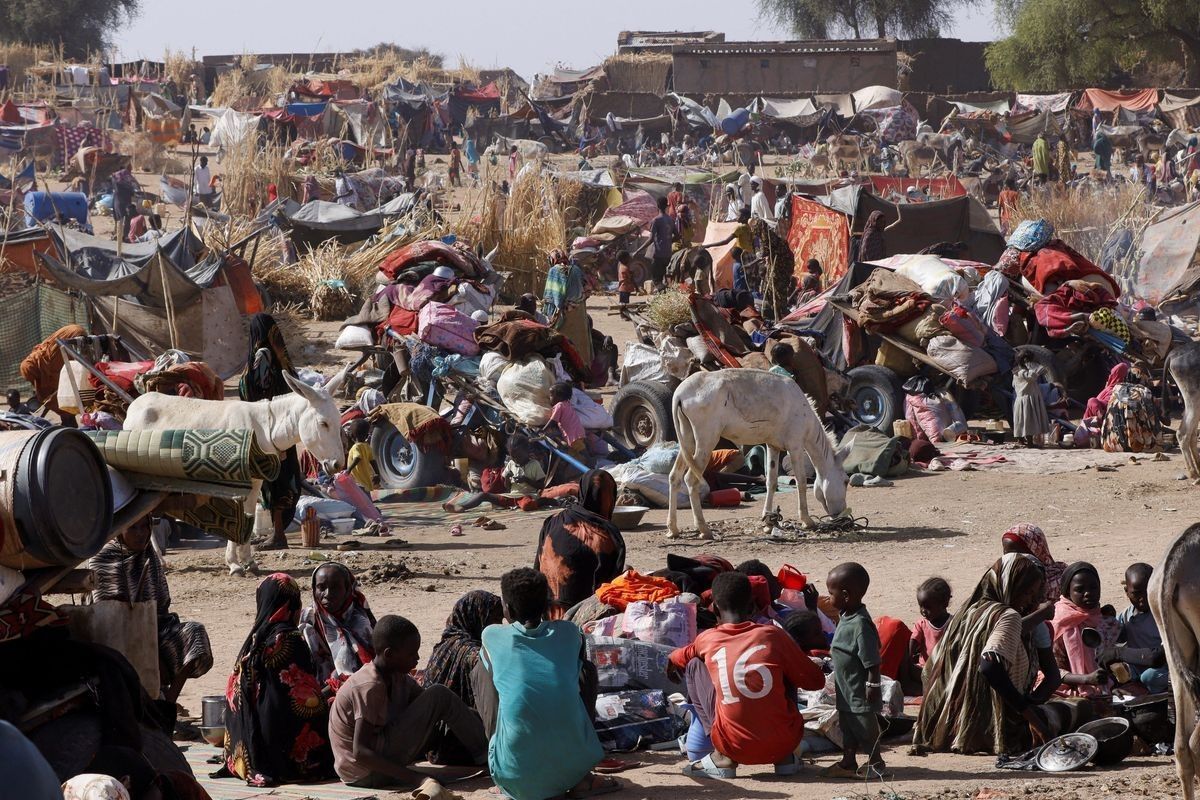Escalating Red Sea vessel attacks risk negating Kenya’s easing inflation as shipment of essential goods affected

The ongoing attacks and tensions have severely impacted the flow of goods through the Suez Canal, with the 7-day moving average of container traffic falling by a staggering 63 per cent year-on-year to December 2024.
The measure of the general cost of living, inflation, saw a decline for most of the year 2024, primarily fueled by favourable rainfall early in the year that enhanced agricultural output.
The improved crop yields contributed to lower food prices, helping to alleviate some of the financial pressures on consumers.
More To Read
- Iran rejects US claim of sending military shipment to Yemen
- Economic outlook: Kenya’s inflation climb raises prospect of monetary tightening in coming months
- Increased food prices push March inflation to 3.6%
- Relief for Kenyans as food prices drop in March after months of rising costs
- Explainer: How did a US journalist end up in a secret chat on Yemen airstrike plans?
- Trump launches large-scale strikes on Yemen's Houthis, at least 31 killed
Data by the Kenya National Bureau of Statistics (KNBS) shows inflation closed the year at the 3.0 per cent mark, down from 6.9 per cent at the start of the year.
However, this relief may be short-lived, as trade disruptions in the Red Sea, a critical shipping route for many African nations, threaten to undermine these gains.
The latest update by PortWatch shows the attacks by the Houthi rebel group on commercial ships traversing the Red Sea, which began in November 2023, are yet to subside.
Consequently, the situation could quickly escalate inflationary concerns once again in import-reliant countries such as Kenya.
This is a result of increased shipping costs of essential commodities.
PortWatch is a group that monitors the operations of all shipping, storage, and cargo handling, specifically concentrating on the impact and risk of such activities on the environment and the quality of life in surrounding communities.
An update by the monitor reveals that the ongoing attacks and tensions have severely impacted the flow of goods through the Suez Canal, Africa's shortest link to the East and West, with the 7-day moving average of container traffic falling by a staggering 63 per cent year-on-year to December 2024.
In particular, the number of cargo and tanker ships moving through the trade route has reduced by 68 and 55 per cent, respectively, year-to-date.
In real-time figures, the number of cargo ships that transit through the Suez Canal has been slashed down to 15 as of December 15, 2024, compared to 47 in the same period in 2023.
Tanker ships on the other hand have reduced to 10 from 22 in the same period under review.
Reduced shipment of essential commodities
The figures point towards reduced shipment of essential commodities from exporting countries into Africa, a scenario that could drive up demand, consequently pushing up prices.
The Houthis are targeting ships from pro-Israel countries to pressure for a ceasefire in the Gaza Strip, and they sometime last year pledged to continue the attacks until Israel ceases its aggression in the contested region.
Attacks on commercial ships prompted shipping companies to re-route traffic away from the Red Sea, all the way through the Cape of Good Hope in South Africa.
As a result, container freight rates have gradually increased since the onset of the attacks.
Data by Statista shows container freight rates have oscillated dramatically between January 2023 and November 2024.
"Freight rates slumped to their lowest level on the 26th of October 2023, when the going rate for a 40-foot container was only $1,342 (Sh173,493)," Statista says.
"Since then, the global freight rate has significantly increased, hitting over $5,900 (Sh762,752) in July 2024, the highest value on record."
It however adds that as of November 28th 2024, freight rates decreased to $3,331 (Sh430,631) per 40ft container, but the long-term prospect remains gloomy on the ongoing attacks.
Top Stories Today















































